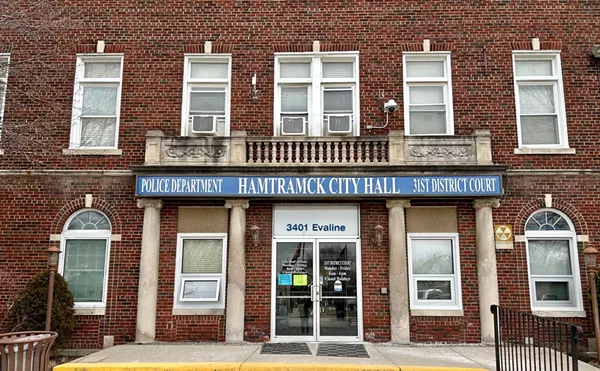
Audio By Carbonatix
[
{
"name": "GPT - Leaderboard - Inline - Content",
"component": "35519556",
"insertPoint": "5th",
"startingPoint": "3",
"requiredCountToDisplay": "3",
"maxInsertions": 100,
"adList": [
{
"adPreset": "LeaderboardInline"
}
]
}
]
I feel a lot better post-election 2008 than I did the last two times around. In 2004, it was weeks before I could watch the news for fear of seeing George W. Bush and his smarmy smirk.
This year, as the euphoria ebbs over electing Barack Obama next president of the United States, talk has moved on to the lessons that are to be learned. As the slicing and dicing goes on, discussions of demographics have convinced me this is a sea change in the way the world works. No less than the end of white, Western European domination of the world is at hand.
I don't mean to sound apocalyptic or anything, but the era of the United States as a white country run by white people is ending — and that has almost nothing to do with Obama, although he may have perceived and tapped into the wave of change earlier than others.
"Without a doubt the United States and Western Europe are becoming more diverse, ethnically and racially," says Ollie Johnson, a Wayne State University political scientist who has written about the politics of multiracial Brazil and post-civil rights black America. "The complexion of the countries is changing. That has political implications in specific states and regions and nationally. Increasing populations of color might contribute to a more balanced political atmosphere. That optimistic outcome is not guaranteed because there is some resentment throughout the United States and Western Europe at particularly the darker color of immigrants and the linguistic differences. They practice different religions and have different cultural practices."
None of this portends any specific political outcome. Nor does it call for any self-righteous "now it's our turn to step on your face" payback. It's just the way it is. It also means a lot of rules of engagement are going to change — which Obama did masterfully in the last election — and the seats at the table where policy is made will probably have to be rearranged.
Survey results from the U.S. Census Bureau released in August tell the tale in the United States: By the year 2042, non-Hispanic whites will no longer be the majority of our population. Today whites comprise 66 percent of the American population. The Census Bureau projects that by 2042 the white proportion of the population will have slid to 46 percent. The sum of Americans who consider themselves Hispanic, African-American, Asian, American Indian, Arabic, Native Hawaiian and Pacific Islander will outnumber European-descended whites. The 2042 estimate was a revision of the 2050 date that was made four years earlier. It's a moving target. Maybe the date will be 2022.
I don't have numbers and projections for Western Europe, but the tensions over rising populations of Arabs and black Africans have resulted in many highly publicized upheavals. We've seen race riots in France and a major legal fight over the right of Muslim girls to wear traditional head coverings in school there. Right-wing nationalist parties are making noise and having an impact. Europeans have been attacked for insulting Islam in the media. Terrorist attacks have become part of the landscape in Germany, England and Spain.
The population change in the United States is driven mainly by Hispanics. We saw the new Hispanic political power in the flipping of former red states Florida, Nevada and Colorado to the blue side. Some pundits say Hispanics also made the difference in Indiana, North Carolina and Virginia. Texas and California already have minority white populations. Much of the Southwest will soon follow suit. That would happen even without illegal immigration, because of the higher birth rates among those who are already here.
The Census Bureau says the Hispanic population will triple from 47 million to 133 million by 2050, a full 30 percent of the national population. Asian numbers will rise from 16 million to 41 million, more than 9 percent of the population. The African-American population will rise from 41 million to 66 million, about 15 percent of the population. The number of people who consider themselves multiracial will triple to 16 million, nearly 4 percent of the population.
"Obama's election was impressive in the sense that he presented himself as an agent of change and as a unifier," says Johnson. "He perhaps was uniquely qualified to be effective in presenting himself as an agent of change. People began to see him as a highly competent unifying figure. ... There are going to be other politicians who appeal to fears rather than hope. I saw that in the McCain-Palin campaign. I don't expect that to go away. Politically this has the potential to play itself out in very complicated and diverse ways."
How complicated? I guess we'll see. Will African-Americans, whose status as the country's largest minority group has been surpassed by Hispanics, feel that their hard-fought political and economic gains are lost? Will diverse groups be able to cooperate in order to achieve common interests? How will those common interests be defined? In this past cycle, some thought that Hispanics would not vote for an African-American. Yet two-thirds of them did. In Florida, where the Cuban community has been reliably Republican in the past, second-generation immigrants and traditionally Democratic Puerto Ricans contributed to a surprising Obama win.
The playing field is changing, and so are the players. The political outcome will depend on cooperation from all groups, including whites. It may bring us to a democracy where no one's interests can be overlooked or taken for granted. Or there may be the kind of all-out cultural wars right-wing skinheads spoil for and have been fomenting in Europe.
Whatever the outcome, it will take more than Democrats and Republicans merely massaging their messages to attract more votes from various ethnicities. A vastly different electorate may well demand vastly enlightened politics. Hopefully we can survive the growing pains.
Two signs that things are economically tight around here recently made impressions on me. The first was that there were fewer households handing out treats on Halloween night than any I can remember. There were entire blocks with no Halloween activity in my northwest Detroit neighborhood, and many blocks with only two or three houses in play. I walked fast and covered a lot of distance with the group of kids I escorted. They got a fair amount of candy; I got sore and tired feet.
The other sign of economic stress was when I ran into a friend at the supermarket. She hosts a legendary Kwaanza party every year complete with a catered meal, live band and security watching the cars outside. Generally, when you run into her this time of year, she reminds you to come to the party. This year she says that she doesn't know if it's going to happen due to lack of money. Whoa! This is a cherished institution among my friends. Maybe it will live on as a potluck. In fact, there may be a whole lot of potlucks in our near future.
Larry Gabriel is a writer, musician and former editor of Metro Times. Send comments to letters@metrotimes.com





